Live Well Allegheny: September 2022 E-Update
This is the latest Live Well Allegheny e-update. It is full of information that will help in making Allegheny County healthy for all. This can also be shared with your own networks.
We have 350+ partners united in our efforts to make Allegheny County healthy for all!
Be sure to like and follow the Allegheny County Health Department on Facebook and Twitter to stay up-to-date on all ACHD news.
A Letter From Our Director
Greetings from the Director’s Office,

September is a time of transition. Labor Day weekend is often considered the unofficial end to summer even though the first day of fall is actually September 22. As summer turns into fall and the routine of a new school year starts, it’s important to reflect and prepare for the new season.
Fall is the perfect time to review your recent nutrition choices and to make a goal to eat more fruits and vegetables during harvest season. September also holds various health awareness observances including Food Safety Education Month, National Suicide Prevention Month, National Recovery Month, National Infant Mortality Awareness Month, and National Sickle Cell Awareness Month, to name a few. If one or more of these holds special meaning for you, your family, a friend, or neighbor, I hope you will do your part to raise awareness for these important initiatives. As Japanese writer Ryunousuke Satoro once said, “Individually, we are a drop. Together, we are an ocean.” Make waves!
Thank you for your time and enjoy this month’s Live Well Allegheny e-update.
As always – please be safe and be kind,
Dr. Debra Bogen
Director, Allegheny County Health Department

Welcome New Live Well Allegheny Partners!
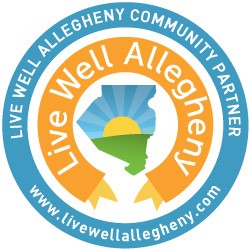
This month we are welcoming two new Live Well Allegheny Community Partners.
Pittsburgh Struggling Student Association (PSSA) works to ensure that schools meet the needs of all students attending Pittsburgh Public Schools, especially low-income Black students. The organization works to eliminate the racial achievement gap, so all students achieve at high levels and 100 percent of high school students graduate ready for college or careers. PSSA fulfills the Live Well Allegheny mission by ensuring health equity for all students enrolled in Pittsburgh Public Schools.
Playful Pittsburgh Collaborative is an initiative within the organization Trying Together that focuses on the importance of play for all ages. They are invested in promoting the benefits of play as well as advocating for its importance, educating decision makers on the importance of play, as well as modeling and inspiring play within the community. They also offer a game borrowing service for organizations. Playful Pittsburgh Collaborative aligns with Live Well Allegheny’s efforts by focusing on increased play as a form of physical activity.
Live Well Allegheny Story
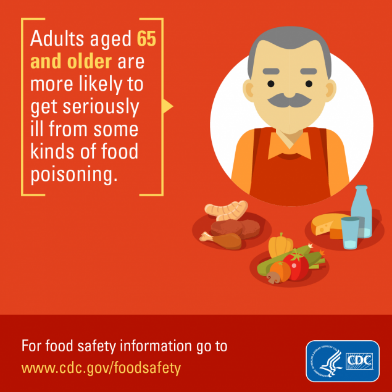
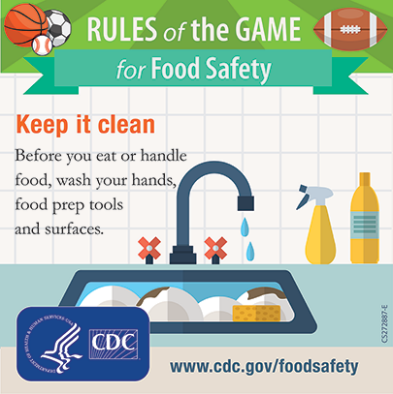
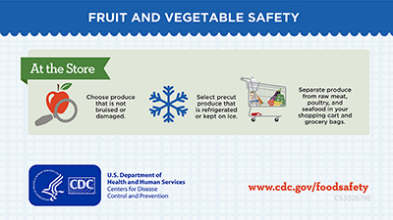
Food Safety Education Month!
September is National Food Safety Education Month. It’s a great time to freshen up on food safety practices and educate yourself about preventing food poisoning.
Each year, about 1 in 6 Americans get a foodborne illness. While only a small percentage of these illnesses are the result of identified foodborne outbreaks (two or more similar illnesses result from eating the same food), most could be avoided with increased attention to safe food handling.
Consumers play an important role in food safety and preventing food poisoning. When preparing and handling food, keep these four steps in mind to help prevent foodborne illness:
- Clean: Wash your hands, utensils, and surfaces often when you cook
- Separate: Raw meat, chicken, turkey, seafood, and eggs can spread germs. Separate them from cooked food and fresh produce.
- Cook: Use a food thermometer to make sure food is cooked to an internal temperature that kills germs.
- Chill: Refrigerate perishable foods: (food likely to spoil or go bad quickly) and leftovers within 2 hours, or within 1 hour if the food is exposed to temperatures above 90°F (like might happen in a hot car or at a summer picnic)
While anyone can get sick from food poisoning, these tips are particularly important for those who are more likely to respond with a serious illness, including:
- Adults 65 or older
- Children younger than 5
- People with weakened immune systems
- Pregnant people
The Health Department also has an important role in preventing illness from food. Its Food Safety Program permits and inspects approximately 8,500 permanent food operations across the county. These include restaurants, retail markets, food processing facilities, caterers, warehouses, mobile vendors, festivals, farmers markets, school cafeterias and nursing homes.
Food Safety protects public health by ensuring that food operations are storing, handling, and preparing food safely. This is done through:
- Conducting inspections
- Investigating complaints
- Responding to emergency conditions
- Offering training and testing to become a Certified Food Protection Manager
- Providing plan review services to people wanting to open a food facility
- Responding to questions
For more information about food safety and preventing foodborne illnesses, sign up for our November Live Well Speaker Series on Tuesday, November 15 from 10-11 a.m. on Microsoft Teams. A member of the Food Safety Program will present. They will present tips for the holidays and a sneak peak of the Allegheny County’s Food Safety Rules and Regulations (Article III) updates. Sign up for the November Speaker Series.
Live Well, Be Well
Did you know? Ninety-six million U.S. adults have pre-diabetes. People with pre-diabetes are at increased risk for Type 2 diabetes, heart disease and stroke.
The Centers for Disease Control and Prevention (CDC) developed a tool to help. Use Path 2 Prevention for guidance to a path toward a healthier life.
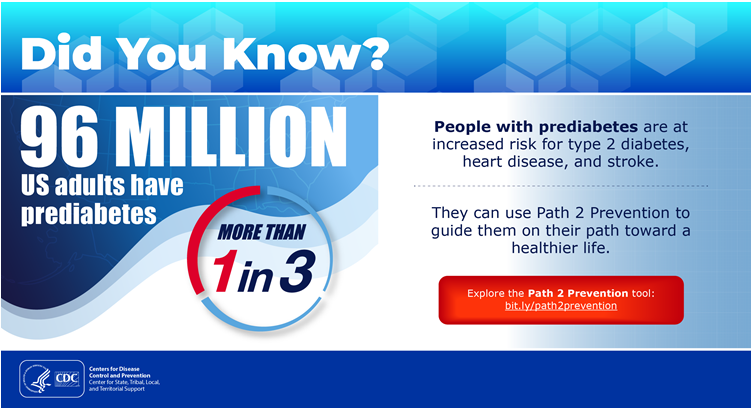
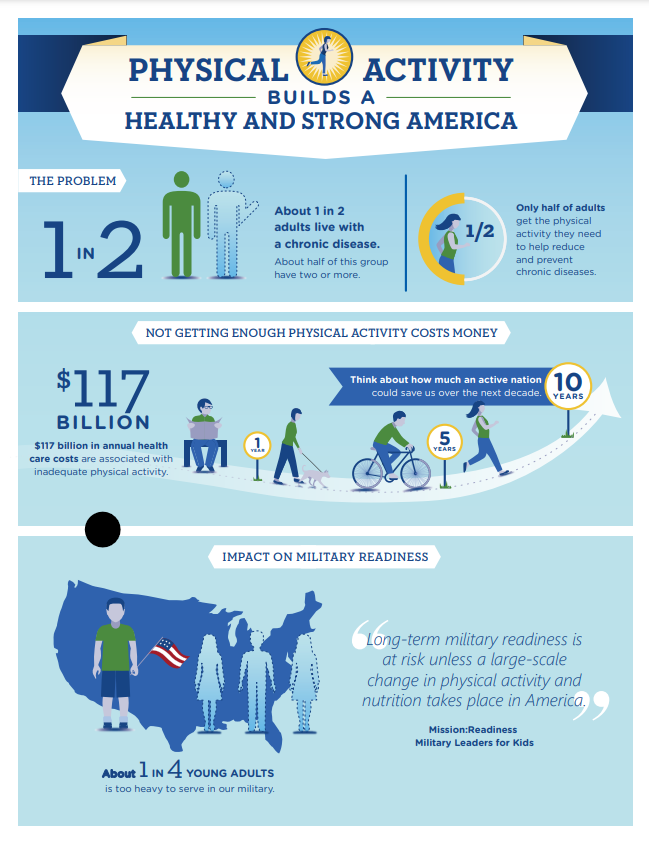
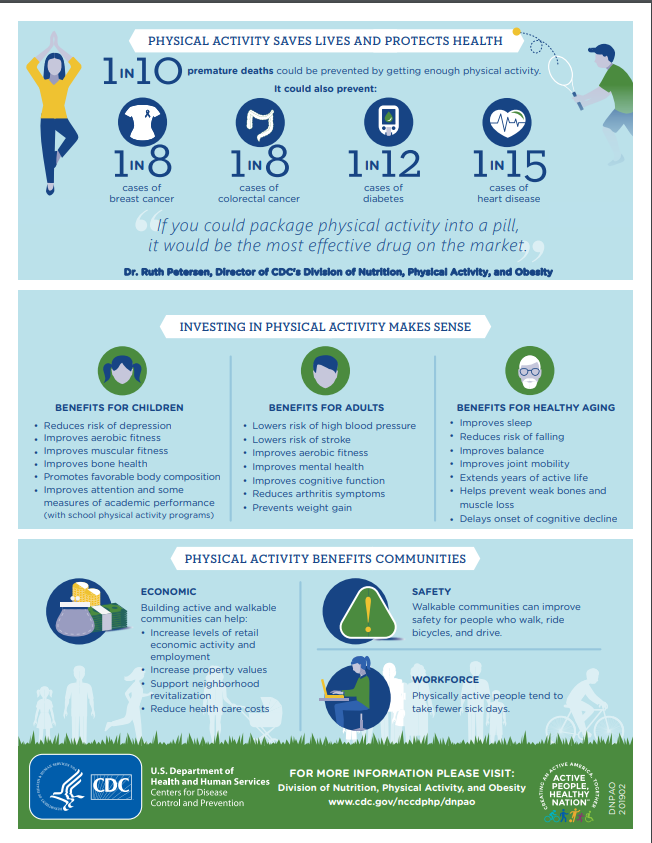
September Health Observances
September is National Suicide Prevention Month
Suicide is a public health crisis and leading cause of death in the United States. Suicide can be prevented through intervention, education, and research. Suicidal thoughts, much like mental health conditions, can affect anyone regardless of age, gender, or background.
If you or someone you know needs support, call, or text 988 or chat by visiting 988Lifeline.org. The Lifeline provides 24/7, free and confidential support for people in distress, prevention, and crisis resources.
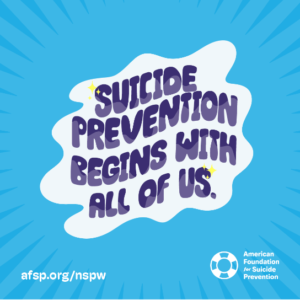

September is National Recovery Month
National Recovery Month reinforces the positive message that behavioral health is essential to overall health, prevention works, treatment is effective, and people can recover. The 2022 National Recovery Month theme is “Recovery is For Everyone: Every Person, Every Family, Every Community.” No one is alone in the journey through recovery.
The Pittsburgh Recovery Walk took place on Saturday, September 17 with representatives from both the ACHD’s Clinical Services and Overdose Prevention programs. Attendees were able to gain access to resources, while also bring attention to a very important cause.
Health Department Updates
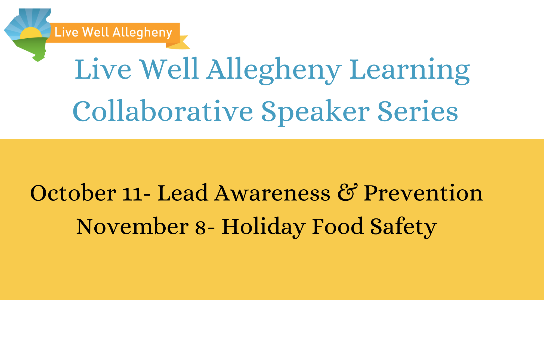
2022 Live Well Allegheny Speaker Series
October Event: Lead Prevention Program
Join us for the October Live Well Allegheny Learning Collaborative Virtual Speaker Series on Tuesday, October 11, from 10-11 a.m. Leading up to National Lead Poisoning Prevention Week October 24-30, the speaker will be Juanita Brown from our Lead Prevention Program.
Questions for the speaker can be sent to Victoria.baker@alleghenycounty.us. Sign up here!
November Event: Food Safety Program
Join us for the November Live Well Learning Collaborative Virtual Speaker Series on Tuesday, November 15, from 10-11 a.m. To help prepare for the holiday season, and to learn a bit more about Food Safety.
Questions for the speaker can be sent to Victoria.baker@alleghenycounty.us. Sign up here!
Chronic Disease Spotlight
According to the CDC, six in 10 adults in the U.S. have a chronic disease and four in 10 adults have two or more chronic diseases. Each month this section will highlight a common chronic disease and provide educational resources.
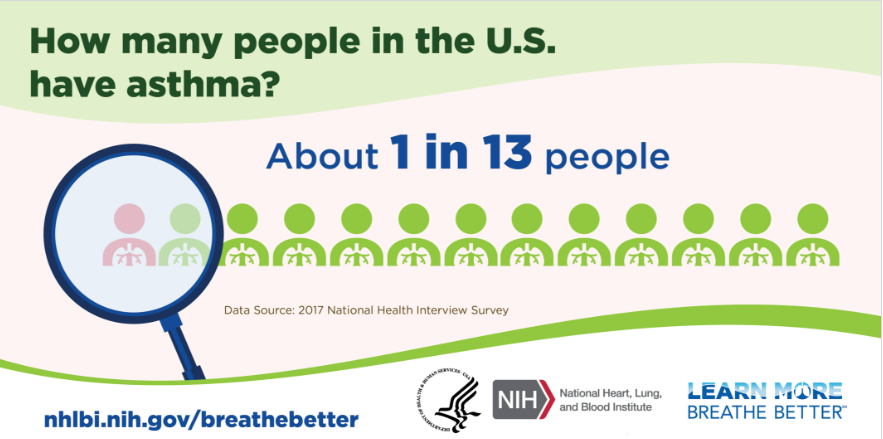
Asthma
Asthma is a disease that affects your lungs. It causes repeated episodes of wheezing, breathlessness, chest tightness, and nighttime or early morning coughing. Asthma can be controlled by taking medicine and avoiding the triggers that can cause an attack.
Asthma in Allegheny County
According to the 2015-2016 Allegheny County Health Survey, it is estimated that ten percent of adults live with asthma in the county. Asthma rates have not declined in recent years and communities of color are disproportionately impacted. For example, 27 percent of Black teens report having asthma, compared to 20 percent of their white counterparts.
The burden of asthma is greater in certain communities compared to others. Children in the Pittsburgh, Wilkinsburg and the Mon Valley are more likely to seek emergency room care and be hospitalized for an asthma attack compared to children residing in other communities (Source: 2019 Allegheny County Task Force Report).
Risk Factors for Asthma
- Tobacco smoke
- Air pollution
- Indoor triggers like dust, animal dander, and other allergens
- Family history
- Allergies
- Obesity
- Occupational exposures
- Poverty
- Lack of health insurance
For more asthma information and resources visit:
